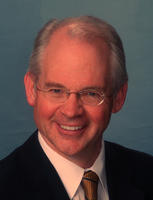Question
Patients continue to ask me about rechargeable batteries for their hearing aids, and many of them are custom instrument wearers. Have there been any advancements custom rechargeables, or are we still confined to zinc air for the time being?
Answer
There certainly have been advancements. Rechargeable products have been in our industry for over 30 years, but never really made it to the mainstream for a variety of reasons. Performance had not met expectations, and the difficulty of using these earlier systems also prevented people from coming on board with them.
The Hansaton AQ system is an entirely redesigned rechargeable hearing instrument. One important design decision in rechargeable products is whether or not we should give consumers access to the battery compartment, so if they forget to charge their hearing aids, they can take the rechargeable battery out and pop a zinc air battery in. That was debated a good deal by our design team and the decision was, no, we don't want to give access for a variety of reasons. Forgetting that you put a zinc air battery in the hearing aid, and then putting it in the charger could be a big problem. Zinc air batteries don't take well to a recharge current. It could cause that battery to bulge, or even burst, and then it's going to release electrolytes into the inside of the hearing aid, damaging the circuitry.
At Hansaton we've eliminating these problems by sealing the battery inside the shell of the custom product and inside the case for the Receiver-in-Canal (RIC). That also reduces moisture ingress into the circuitry, which we know can be an issue for traditional instruments.
In order to make a rechargeable system really useable, it needs a certain operating time per charge. Patients generally need 16 to 18 hours of use during the day. The AQ system will give you 20-30 hours per charge in the custom version, and 20 hours per charge in the new AQ X-Mini RIC model. With our systems, the average recharge time is 2 to 4 hours to get a full day's use.
Earlier rechargeables had memory problems;if you didn't use the full charge cycle and the full discharge cycle, you compromised the battery memory. With the AQ system, you don't compromise battery performance if you do a partial charge. We guarantee the battery for 5 years, which is about the time people are looking to replace hearing instruments, so we're essentially guaranteeing the battery for the life of the instruments in many cases.
Hansaton has a product that is going to go well beyond the early-adopter segment and into the majority market, because we've eliminated all of the issues: we've got top-notch performance, and there's nothing out there that's easier to use. Again, you never have to think about a battery.
Editor's Note: This Ask the Expert was taken from the Interview with Jerry Yanz published on August 22, 2011. Access the complete interview here.
Jerry Yanz's career in audiology has spanned several venues, including academia, the audiology clinic and the hearing aid industry. Since entering the hearing aid industry, he has engaged in product research and development, executive management and ongoing education of hearing professionals. Dr. Yanz has presented courses at many national and international conferences. He has a passion for exploring possibilities offered by new ideas and technologies and translating challenging technical concepts into a language that is understandable and beneficial to practitioners.
For more information about Hansaton, visit www.hansaton-usa.com or the HANSATON web channel on AudiologyOnline.
